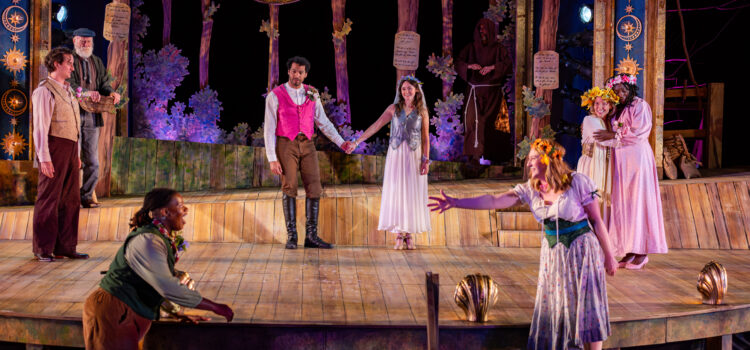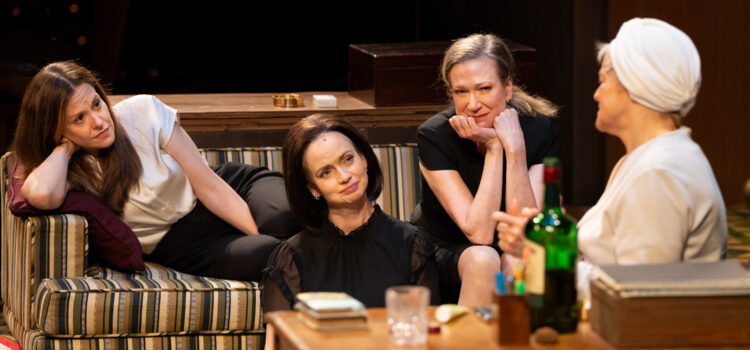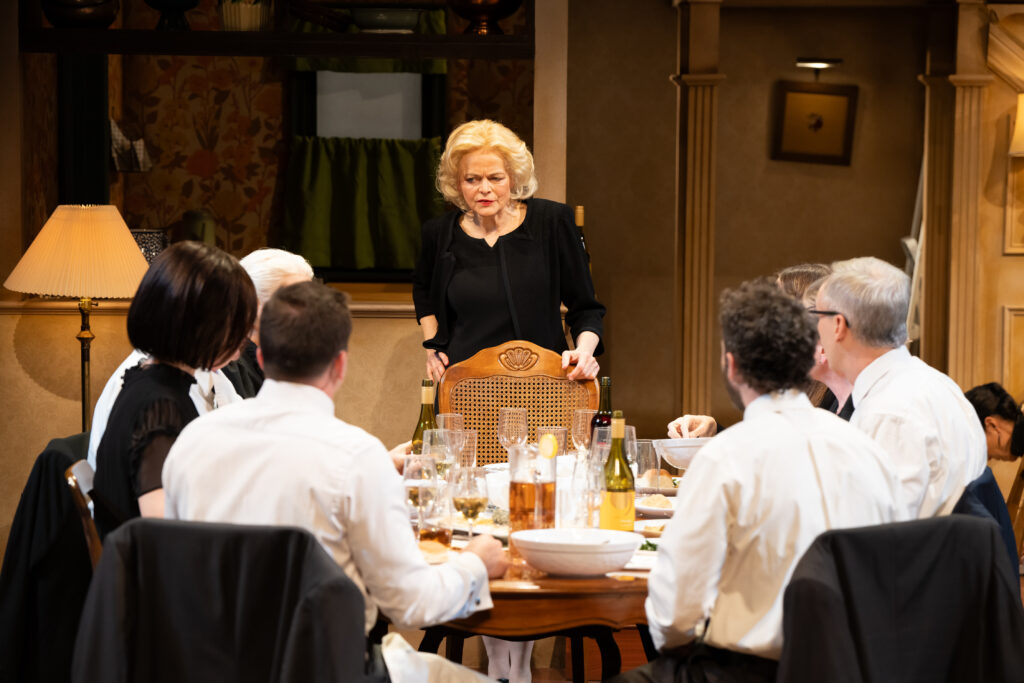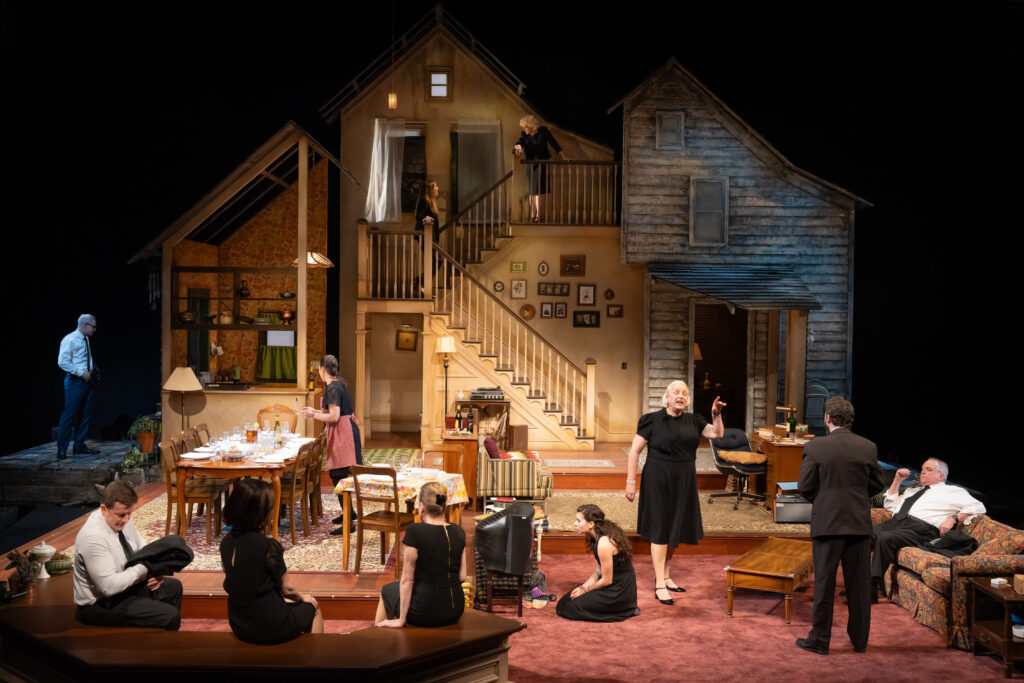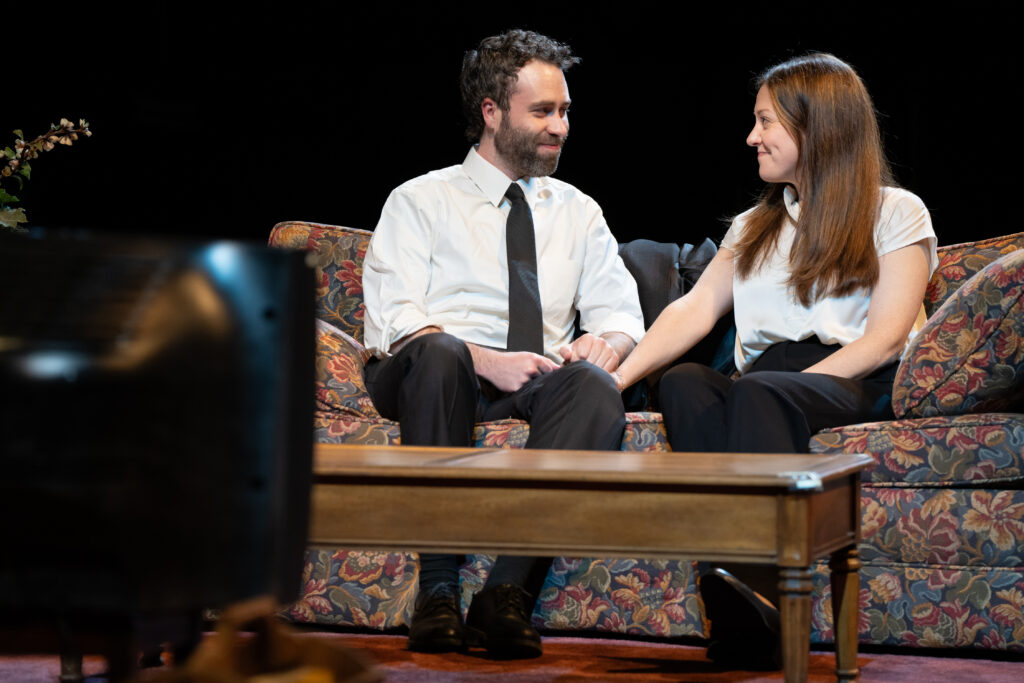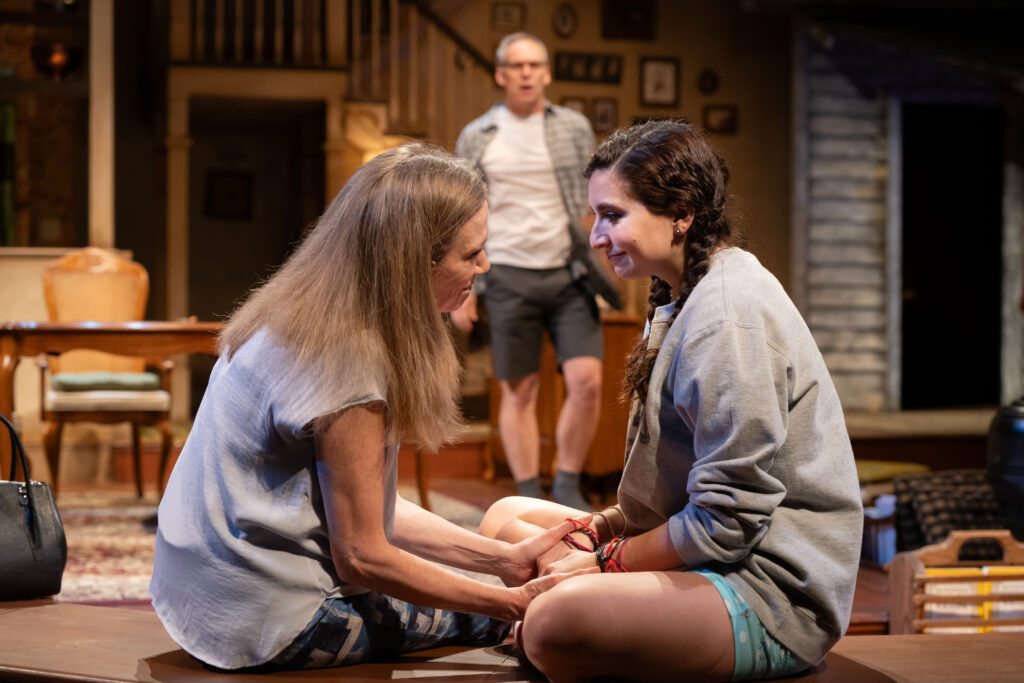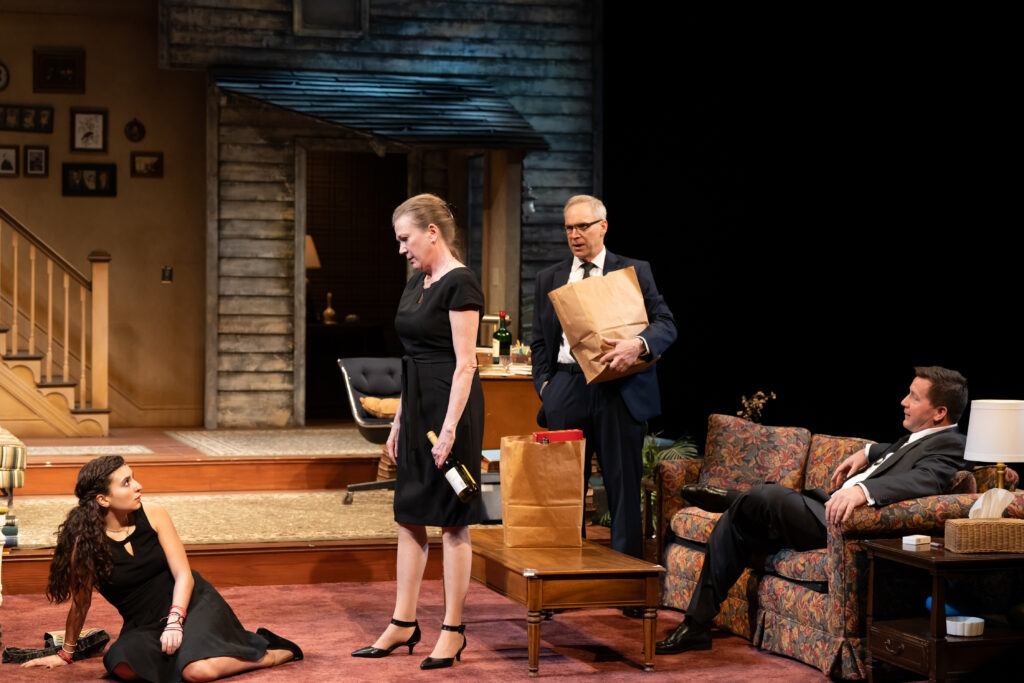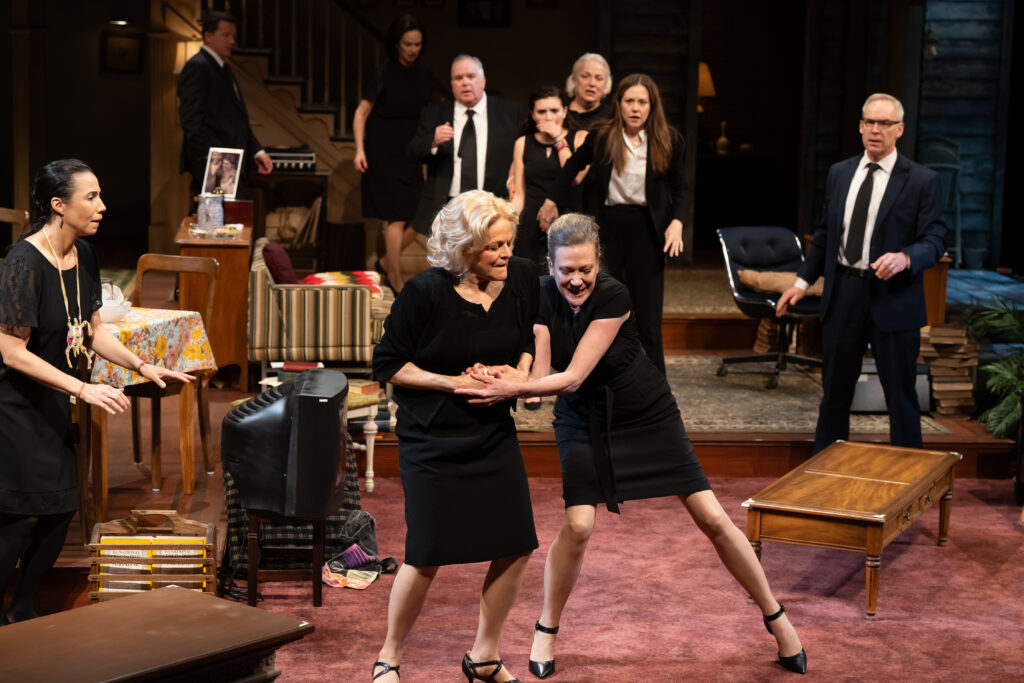By Lynn Venhaus
Need a vacation? Escape to Forest Park’s Shakespeare Glen for an idyllic summer treat, for “As You Like It” is a robust, refreshing tonic that celebrates the restorative powers of art, love, and nature.
An absolutely perfect vehicle for the St. Louis Shakespeare Festival’s annual offering, this 1623 romantic comedy is fun and frisky.
It’s been 20 years since it was last performed on the mainstage, and one of the playwright’s most accessible.
Sprinkling her magic fairy dust, director Nancy Bell demonstrates why she is a master interpreter of the Bard. A creative genius, she stamps every project with esprit and has a firm grasp of iambic pentameter.
In much the same way she has engaged audiences by transforming classics into easy-to-understand mashups in past local Shakespeare in the Streets projects, she maintains a breezy and playful atmosphere.
The festival’s former playwright-in-residence, she wrote the vigorous “Remember Me” performed outdoors in Maplewood, “Blow Winds!” downtown, “Good in Everything” in Clayton, “The New World” in Benton Park West, and the St. Louis Theater Circle Award winners for Best New Play “The World Begun” in Old North St. Louis and “Old Hearts Fresh” in The Grove.
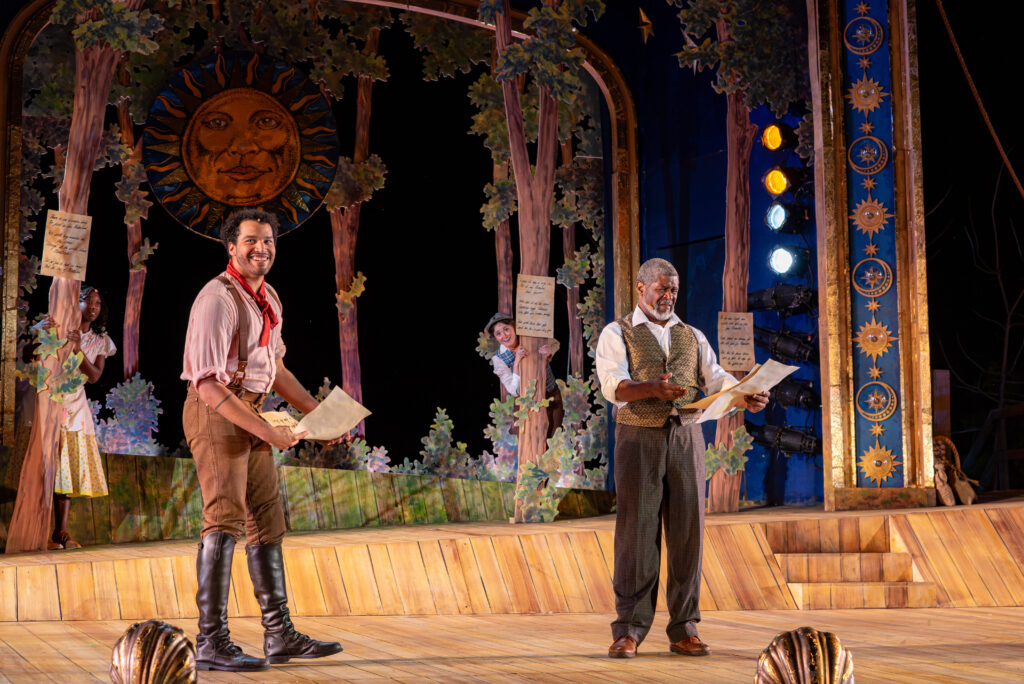
To further illustrate a point about embracing change in “As You Like It,” Bell’s adaptation is a liberating antidote to a stuffy and strait-laced patriarchal Gilded Age.
A scintillating ensemble conveys a more laid-back, accepting merry band of brethren – well, emphasis on a sisterhood – once action shifts to the Forest of Arden.
The contrasts couldn’t be sharper when imperious Duke Frederick – ever-reliable Joel Moses in high-handed wickedness, banishes his sister Duchess Senior, a feisty Michelle Hand, from the royal court. Oh pshaw!
Defiantly, the Duchess flees to the Forest of Arden, where she discovers exile can be rejuvenating. It’s another memorable performance from the inspired Hand.
Also thriving in this pastoral setting is the Duchess’ daughter Rosalind, a clever girl who disguises herself as a man, Ganymede. After all, this is Shakespeare, so of course the plot includes mistaken identities.
Caroline Amos is poetry in motion as Rosalind, sprinting across the stage with boundless energy. She is matched by the delightful Jasmine Cheri Rush as her loyal cousin-best friend Celia, the Duke’s daughter. Rush has returned for a second year, after playing Olivia in last summer’s “Twelfth Night.”
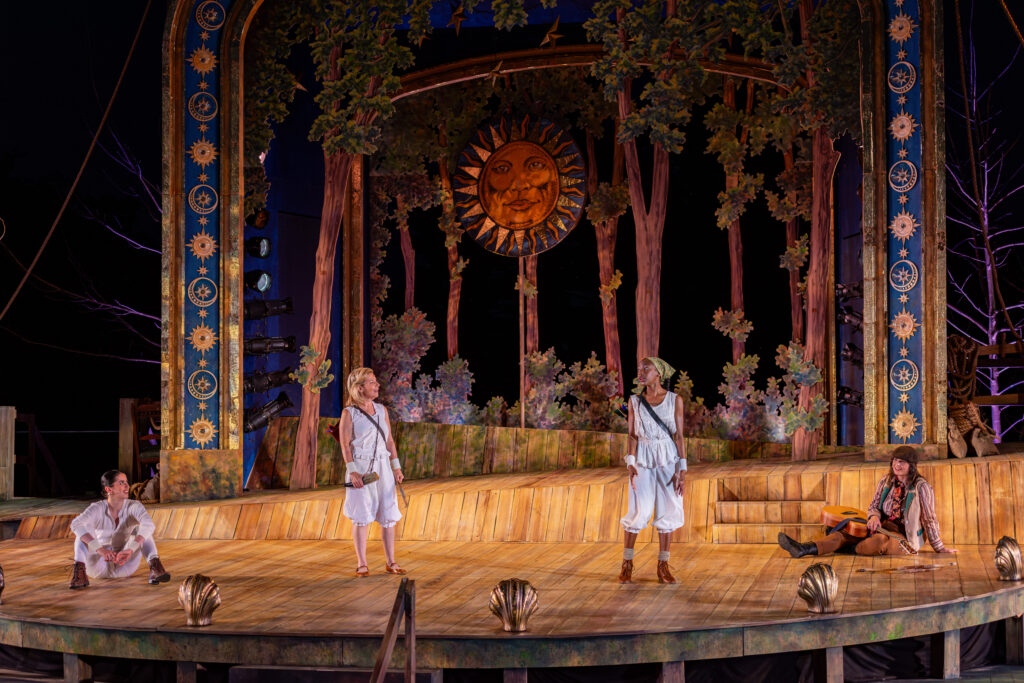
Rosalind falls in love with affable landowner Orlando, also displaced, and Christian Thompson is a charmer as her heroic object of affection, if a bit dim because he doesn’t suspect anything unusual.
In fairness, he’s pre-occupied trying to stay one step ahead of his scheming brother Oliver (Greg Cuellar), who is not very nice – as in trying to get his sibling killed.
Their lives become topsy-turvy, with thankfully Orlando having a change of heart, and the sweet Celia zeroes in on him.
Further wackiness ensues with the introduction of effervescent Ricki Franklin as bawdy Touchstone, a clownish character. Franklin’s a bright addition for the second year in a row, a scene-stealer last summer as Dame Toby Belch in “Twelfth Night,” a gender-bending turn that earned her a St. Louis Theater Circle Award,
Delivering one of Shakespeare’s most famous soliloquys, “All the world’s a stage…,” the mellifluous Wali Jamal earned applause immediately after reciting the passage so eloquently. He plays Jaques, a solitary and gloomy man who leans towards the melodramatic.
The multi-generational cast includes familiar and fresh faces, notably local treasure Joneal Joplin, who was in the festival’s first Forest Park show, “Romeo and Juliet,’ in 2001. He returns for his seventh one as Adam, a devoted servant of Sir Rowland de Boys, who is Oliver and Orlando’s father.
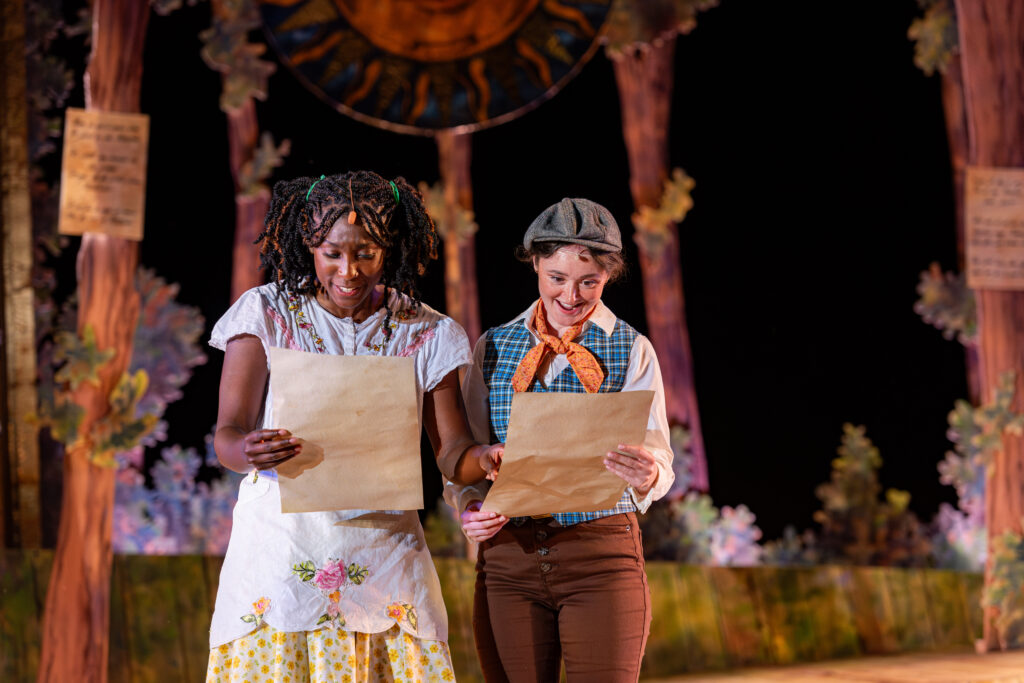
Making her festival ensemble debut is winsome young teen Riley Carter Adams, a seasoned performer on local stages with television credits. She is listed as “young lady.”
Romance is on the mind of several characters. Kathryn A. Bentley is a likable shepherd Corin, a sage advisor to Silvius, who is not listening. CB Brown is endearing as the lad in need of guidance, for he’s in pursuit of Phoebe, who only has eyes for Rosalind (Ganymede).
Molly Wennstrom is spirited as the unpleasant but lovestruck shepherdess, whose course is altered by Touchstone’s interesting moves. Phoebe’s due for a rude awakening.
Two of the goofiest characters are Isaiah Henry as William, a simple, unsophisticated country boy crushing on goatherder Audrey, humorously played by Bianca Sanborn.
In a crowd-pleasing turn, St. Louis professional wrestler Lenny Mephisto, aka Maniacal Mephisto, is pitted against Orlando as Charles, a wrestler in the duke’s court.
The wrestling match is well-staged, thanks to savvy fight and intimacy choreographer Rachel Flesher, and Cuellar, who also is fight captain.
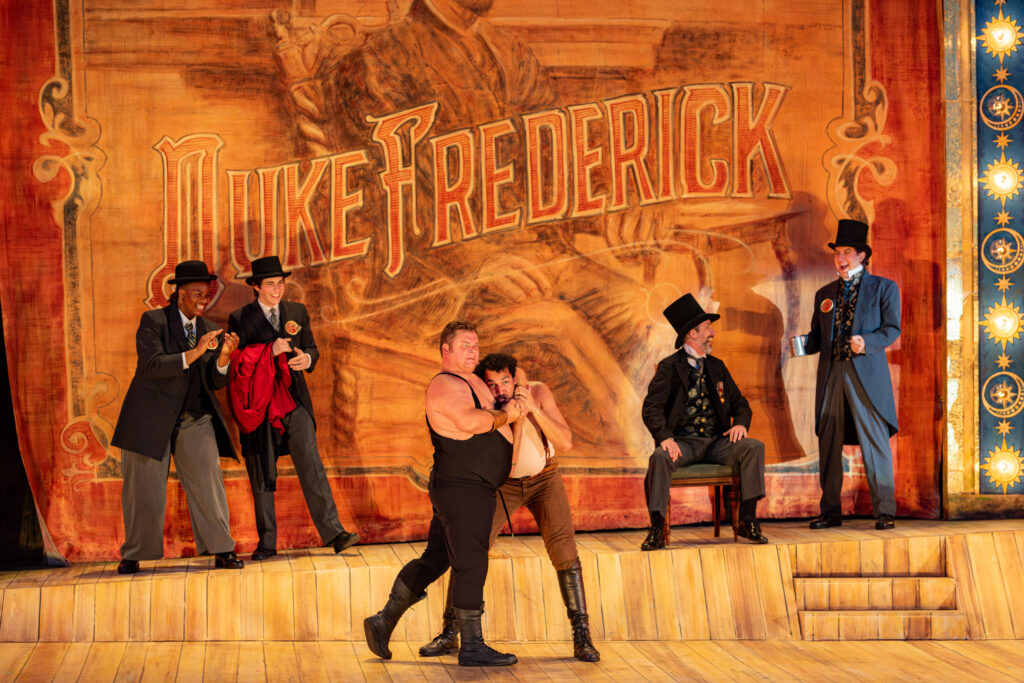
Captivating music is an integral part of this vibrant tableau, with an original score performed live on stage by local musician Beth Bombara in the role of faithful friend Amiens. Joining her are Sam Golden on viola and mandolin and percussionist Jeremy Reidy.
Scenic Designer Scott C. Neale, whose work has always astonished on the outdoor stage in Shakespeare Glen, has created a striking bucolic setting that is reminiscent of an old-timey illustrated picture book. Its reveal earned a hearty round of applause.
Among his six previous designs, you may recall his stunning set for “Antony and Cleopatra” in 2015 and “Henry IV and V” the year before.
As is customary, the technical work is superb, with distinct work by lighting designer Denisse Chavez and costume designer Dottie Marshall Englis. Sam Gaitsch choreographed buoyant moves, and props manager Taylor Laine Abs kept the accessories simple.
The unpredictability of working with live farm animals is evident with a goat and a sheep from D Bar S Ranch, which amused the crowd May 31. Apparently, from new accounts, they are adjusting to life in the spotlight.
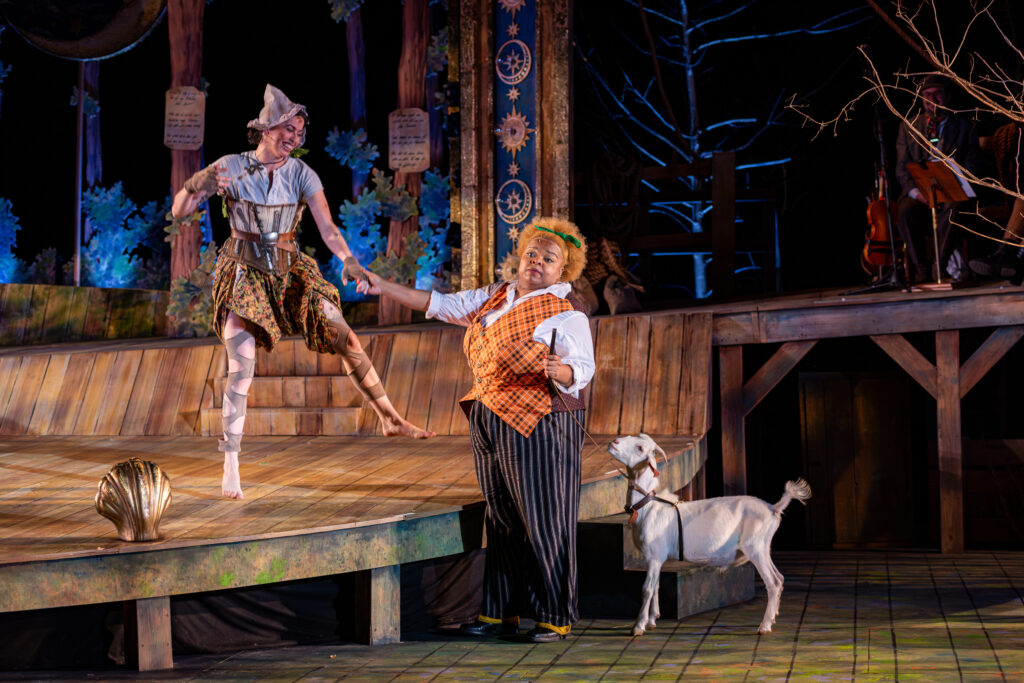
With its exuberant and energetic cast having a swell time on stage, that translates into one of the most enjoyable Shakespeare Festival’s mainstage efforts to date.
Due to their high standards, the festival has grown into the largest free outdoor Shakespeare play between the coasts. It’s a well-deserved achievement, and this supremely entertaining effort is not to be missed.
The festival is one of the best things about living in the St. Louis metropolitan region, and we are so very fortunate to be able to smile on a summer night under the stars in Forest Park.
St. Louis Shakespeare Festival presents “As You Like It” from May 29 to June 23, Tuesday through Sunday, at 8 p.m., free in Forest Park (Shakespeare Glen). https://stlshakes.org/production/as-you-like-it/
Shakespeare in the Park is free to attend, no reservations or tickets required for any of the performances. But every night a small number of reserved chairs and blanket spots are available for purchase – directly supporting the Festival’s mission and year round programming. Find your favorite spot: in the blanket-only section, box seats for up to six guests or general single-chair reservations.
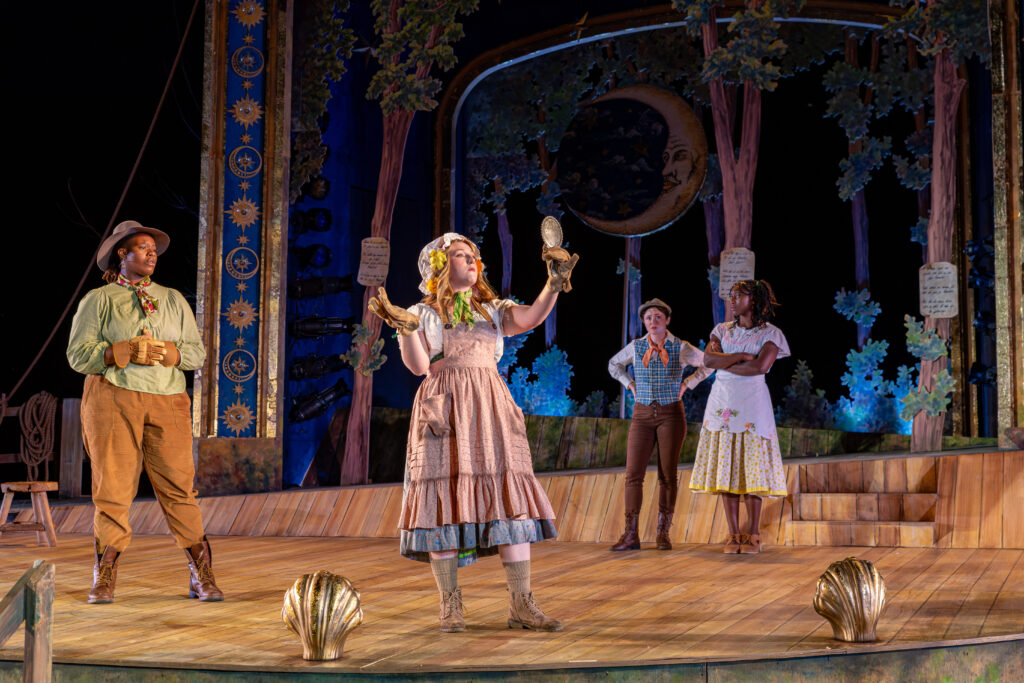
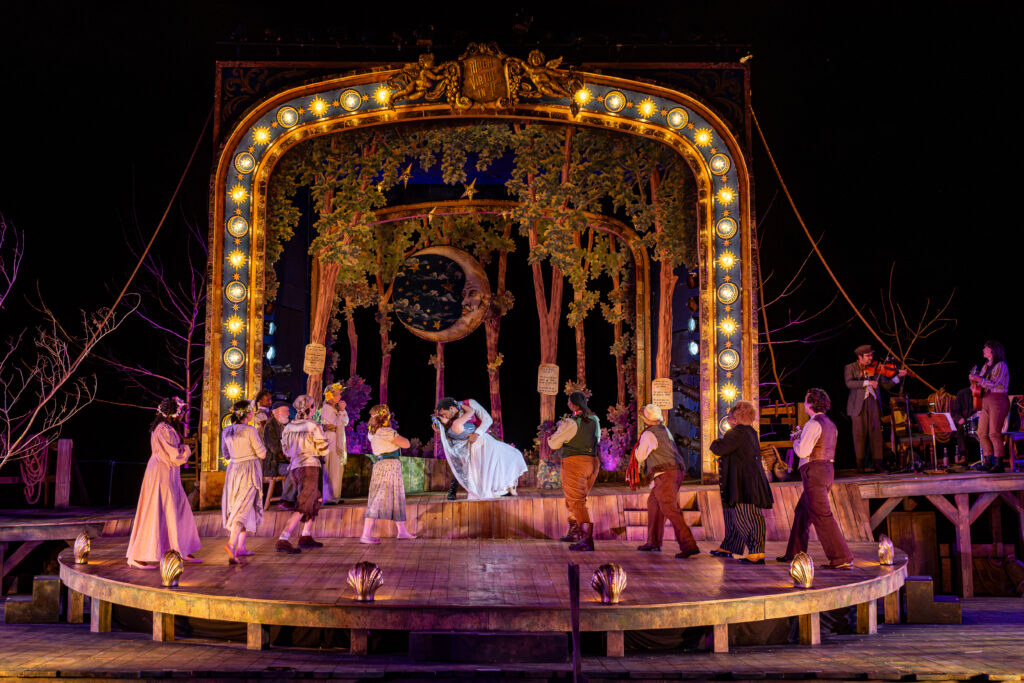

Lynn (Zipfel) Venhaus has had a continuous byline in St. Louis metro region publications since 1978. She writes features and news for Belleville News-Democrat and contributes to St. Louis magazine and other publications.
She is a Rotten Tomatoes-approved film critic, currently reviews films for Webster-Kirkwood Times and KTRS Radio, covers entertainment for PopLifeSTL.com and co-hosts podcast PopLifeSTL.com…Presents.
She is a member of Critics Choice Association, where she serves on the women’s and marketing committees; Alliance of Women Film Journalists; and on the board of the St. Louis Film Critics Association. She is a founding and board member of the St. Louis Theater Circle.
She is retired from teaching journalism/media as an adjunct college instructor.

